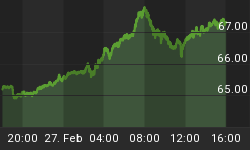The Federal Reserve was served a subpoena from a Congressional committee Tuesday, as lawmakers demanded documents related to Bank of America' s acquisition of Merrill Lynch. In our view, this is a precursor of more trouble to come for the Fed.
We have argued for some time that Fed Chairman Bernanke completely underestimates the political dimensions of the policies he pursues. The various "credit easing" programs have little to do with monetary policy, the domain of the Fed. Monetary policy ought to be concerned with money supply or the level of interest rates, thereby allowing the markets to decide where the money flows.
Instead, the Fed has been targeting specific sectors of the economy, such as helping the housing market or enabling car loans. The motivation is understandable, as the Fed is well aware that it may not be powerful enough to support the housing market otherwise, and sees it as crucial in its plan to prop up the economy.
However, allocating money to specific sectors of the economy is fiscal policy and, as such, should be authorized and supervised by Congress. This facet is perilous for the Fed to ignore, as it invites political backlash. Last week, Bernanke was grilled by the House Budget Committee, giving him a taste of more to come; the subpoena is a further step.
The 'unconventional' policies jeopardize the credibility and independence of the Fed. This takes its toll on the effectiveness of monetary policy, making any policy more expensive. Remember: the cheapest monetary policy is one where a Fed official simply utters a few words and the market reacts. Ever since the fall of 2007, monetary policy has become increasingly more expensive as the Fed' s effectiveness has been eroding. When Fed talk was no longer sufficient, the Fed had to enact an emergency rate cut in early 2008; since then, the Fed had to escalate its policies further, printing trillions of dollars.
Unfortunately, this trend may accelerate rather than reverse. Fasten your seatbelts.















